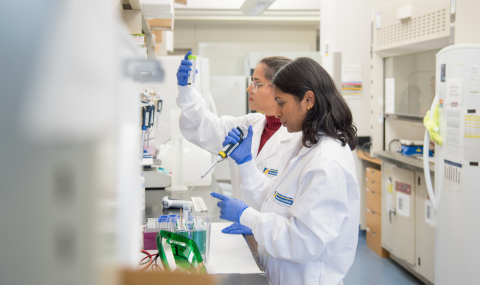MEDIA RELEASE
For Immediate Release
Febraury 12, 2013
Tips for optimizing natural fertility
LONDON, Ontario – February 12 is Sexual and Reproductive Health Awareness Day in Canada. The inability to conceive affects 15 percent of all couples in North America. Pregnancy outcomes are influenced by pre-pregnancy health status, lifestyle, and medical history.
The Fertility Clinic at London Health Sciences Centre (LHSC) is sharing a list of some of the factors men and women considering conceiving should think about:
The effect of age: Relative fertility is decreased by about half among women in their late 30’s compared with women in their early 20’s
Weight: Being overweight or underweight can lead to subfertility, with both affecting ovulation, as well as potential pregnancy complications.
Exercise: Although exercise has many benefits, studies have shown that more than seven hours per week of vigorous aerobic exercise may interfere with normal reproductive functioning by causing women to stop ovulating and, in some cases, menstruating.
What you eat: There are no specific foods or beverages that will make someone more fertile. However, one’s overall nutrition has a subtle, but powerful effect on all of the body’s systems including reproduction.
Lifestyle: Smoking, alcohol, recreational drugs and exposure to chemicals are all associated with sub-fertility and adverse effects during pregnancy.
Couples experiencing challenges in achieving pregnancy are encouraged to contact their family doctor, or The Fertility Clinic, for further investigation and potential treatment.
“Infertility is a reality for many couples, but there are therapies and treatments available that can help achieve a successful pregnancy”, said Dr. Maggie Rebel, the Fertility Clinic London Health Sciences Centre. “Our recommendation is that females under the age of 35 who ovulate regularly, but who are unable to conceive within a year’s time seek medical advice. For women over 35 years of age, however, evaluation should being after six months of attempting pregnancy.”
About London Health Sciences Centre
London Health Sciences Centre has been in the forefront of medicine in Canada for 138 years and offers the broadest range of specialized clinical services in Ontario. Building on the traditions of its founding hospitals to provide compassionate care in an academic teaching setting, London Health Sciences Centre is home to Children’s Hospital, University Hospital, Victoria Hospital, the Kidney Care Centre, two family medical centres, and two research institutes – Children’s Health Research Institute and Lawson Health Research Institute, a joint research initiative with St. Joseph’s Health Care London. As a leader in medical discovery and health research, London Health Sciences Centre has a history of over 65 international and national firsts and attracts top clinicians and researchers from around the world. As a regional referral centre, London Health Sciences Centre cares for the most medically complex patients including critically injured adults and children in southwestern Ontario and beyond. The hospital’s nearly 15,000 staff, physicians, students and volunteers provide care for more than one million patient visits a year. For more information visit www.lhsc.on.ca
- 30 -
For media inquiries contact:
Kathy Leblanc
Corporate Communications and Public Relations
London Health Sciences Centre
519-685-8500, ext.74772
kathy.leblanc@lhsc.on.ca
After-hours assistance:
Call LHSC Switchboard at 519-685-8500 and ask to page the communication consultant on-call
Visit the LHSC Media web site at www.lhsc.on.ca/media
Like us on Facebook at LHSC Canada, follow us on Twitter @LHSCCanada and watch us on YouTube at LHSCCanada.



